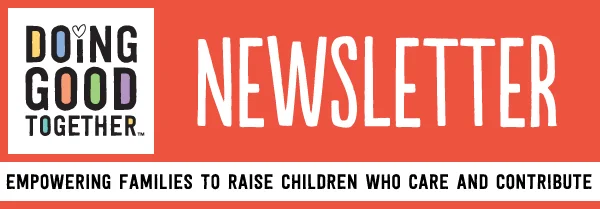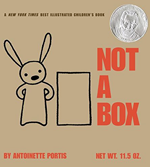BUILD EMPATHY AND MORE WITH PLAY
It seems counter-intuitive, but some researchers say that starting "school learning" too soon can actually slow academic progress. That's because young children are wired to learn through active exploration, so they need plenty of time for play. Yet playtime has decreased both at school and at home. Some schools have eliminated recess altogether, and at home there is more focus on screentime, enrichment activities, and protectiveness. Play is a critical way to acquire knowledge, build imagination, enhance mental and physical health, and practice social skills. Just as important, research indicates that play can help children develop empathy and compassion.
-Jenny Friedman, Executive Director
GO PLAY!
Make a Difference.....
It's important to provide your child with lots of opportunities for free, unstructured play. Here's why it matters.
Pretending to be someone else when you play, and acting out their feelings and actions, has been shown to increase empathy. Encourage your child to imagine she's a doctor, school bus driver, U.S. president, pirate or parent. Interestingly, empathy also increases when children are asked to imagine themselves as inanimate objects, animals or plants.
Play in nature. This not only helps develop a respect for other living things, but it also hones observational skills, fosters independence and encourages a sense of wonder.
When children cooperate on a project (building a fort, playing house), they learn to negotiate and compromise and take into account many points of view. Similarly, board games require kids to think about what's going on in the minds of other players so they can make strategic moves.
Solitary play is also important. It nurtures creativity and exploration, and helps children de-stress and learn to be comfortable being alone.
Play can enhance your relationship with your child, too. When you tune in to your child as he or she plays, you gain a window into their way of looking at the world. Plus, playing together gives you an opportunity to model empathy by asking questions, sharing feelings and showing respect for your child's viewpoint.
EXPLORING & THINKING THROUGH PLAY
Talk About It.....
Even if your children are playing with friends, you can bring up how their behavior impacts others. If they treat someone unkindly, talk about how it made their friend feel and how to make amends. When you and your child play together, ask open-ended questions rather than ones that can be answered with a simple yes or no. This can keep the conversation going and encourage imagination, empathy and critical thinking. Some examples:
Wow! Tell me more about that!
How do you think Carlos felt when his mom said he had to go home?
Kayla looks like she's feeling left out. What could you do to include her?
Do you think kids at the playground should share their toys with kids they don't know?
What would you do if you had a real backhoe like this?
How do you feel about that?
What happened next?
How many different things can you think of that we could do with this empty box?
How could we make a house for your teddy bear?
Learn About It…
Not a Box by Antoinette Portis. This wonderfully simple book celebrates the power of imagination and play.
For adults who want a closer look at all the reasons play matters, check out Edutopia's infographic .
INSPIRATION
"Play is our brain's favorite way of learning."
— Diane Ackerman, American poet, author, naturalist






